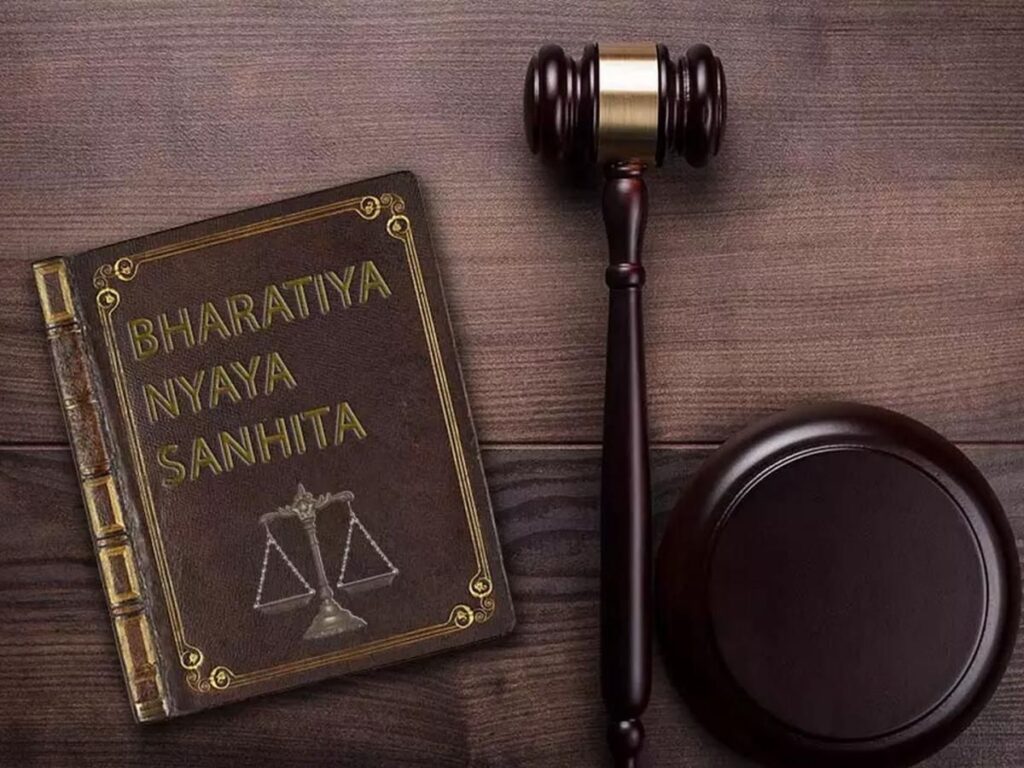 Chapter I – Preliminary Sections 1 of the Bharatiya Nyaya Sanhita, 2023
Chapter I – Preliminary Sections 1 of the Bharatiya Nyaya Sanhita, 2023
Introduction
The Bharatiya Nyaya Sanhita (BNS), 2023, marks a historic transformation in India’s criminal law framework, replacing the Indian Penal Code, 1860 (IPC) after more than 160 years. The first chapter of BNS, titled “Preliminary”, lays down the foundation for the entire code, defining its title, commencement, applicability, and territorial jurisdiction.
Previously, this introductory part under the IPC consisted of Sections 1 to 5, but the BNS streamlines it into Sections 1 to 3.
Section 1 – Short Title, Commencement, and Application
(1) This Act may be called the Bharatiya Nyaya Sanhita, 2023.
(2) It shall come into force on such date as the Central Government may, by notification in the Official Gazette, appoint, and different dates may be appointed for different provisions.
(3) Every person shall be liable to punishment under this Sanhita and not otherwise for every act or omission contrary to the provisions thereof, of which he shall be guilty within India.
Explanation:
• The BNS will come into operation only after a notification by the Central Government.
• Subsection (3) clearly establishes that liability arises only under this Sanhita for any act or omission committed within the territory of India.
Territorial Jurisdiction and the Concept of Locality of Offence
The principle of territorial jurisdiction forms a cornerstone of criminal jurisprudence. The general rule is that an offence is triable in the country where it is committed, regardless of the offender’s nationality.
Case Law: Mobarik Ali v. State of Bombay (1957 SC)
Facts:
A Pakistani citizen, while residing in Karachi, communicated with a businessman in Bombay through letters, phone calls, and telegrams. He deceived the complainant into sending over ₹5 lakh to his agents in India, promising rice shipments that never arrived.
Held:
The Supreme Court of India upheld the conviction under Section 420 IPC (cheating) and ruled that:
Even though the accused was not physically present in India, the offence was committed in Bombay because all the essential ingredients of the offence took place there.
Legal Principle:
Physical presence within the territory is not necessary if the effects or essential components of the offence occur within India.
Extent and Applicability (Section 2–3 of BNS)
The territorial extent of India, for the purpose of applying its criminal laws, includes:
• Land territory
• Internal waters (rivers, lakes, canals)
• Maritime territory (up to 12 nautical miles from the baseline)
Extraterritorial Jurisdiction (Section 3 BNS)
Subsection (4) and (5) extend the jurisdiction of the BNS beyond India’s borders in certain circumstances.
(4) Trial for Offences Committed Outside India
Any person who can be tried under any Indian law for an offence committed outside India will be dealt with as if the act were committed within India.
(5) Offences by Indian Citizens Abroad
This subsection applies to:
• (a) Indian citizens committing offences outside India.
• (b) Any person on a ship or aircraft registered in India.
• (c) Any person outside India targeting a computer resource located in India.
Illustration:
A, an Indian citizen, commits murder in a foreign country. He can be tried and punished for murder in any Indian court where he is found.
Section 6 – Exception for Special and Local Laws
Nothing in the Bharatiya Nyaya Sanhita affects:
• The Mutiny or Desertion Acts concerning armed forces, or
• Special/local laws that prescribe distinct punishments or procedures.
This ensures coexistence and harmony between the BNS and other central or state-specific laws.
IMPORTANT POINTS:
1. Section 1–3 of the BNS establish its scope, commencement, and territorial applicability.
2. Criminal jurisdiction depends on where the offence occurs, not where the offender resides.
3. The Mobarik Ali case remains a landmark precedent affirming India’s right to prosecute offenders whose acts impact the country.
4. Extraterritorial jurisdiction extends to Indians abroad, ships and aircraft registered in India, and cybercrimes targeting Indian systems.
5. The BNS harmonizes with other existing laws without superseding them.
Conclusion
The Preliminary Chapter of the Bharatiya Nyaya Sanhita, 2023, lays a clear constitutional and territorial foundation for India’s new criminal justice framework. It emphasizes legal uniformity, jurisdictional clarity, and the digital relevance of modern offences. With its balanced provisions, the BNS ensures that no offender escapes liability—whether within or beyond Indian territory
To start your preparation for Judicial Services Examination at home, drop a message on WhatsApp +91 8840961324 or call us on +91 9151591324
At Theory of Abrogation, we equip you with everything you need:
•Subject-wise expert classes
•Mock test series
•Legal current affairs
•Personalized mentorship for interview preparation
“Your law degree is your foundation, but your preparation is what will build your success.”
Join Our New Batch Now!
Prepare smart. Prepare with Theory of Abrogation.
Contact Us:
B-109, Commercial
Complex Dr. Mukherjee
Nagar, Delhi-09
+91 9971399324 | +91 8840961324
[email protected]
